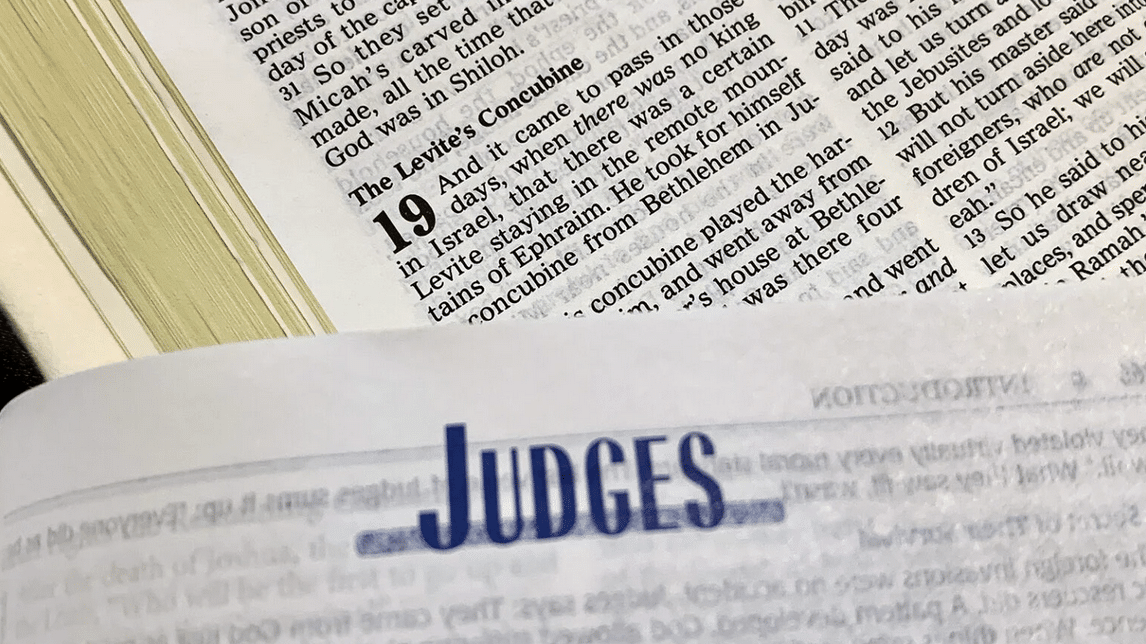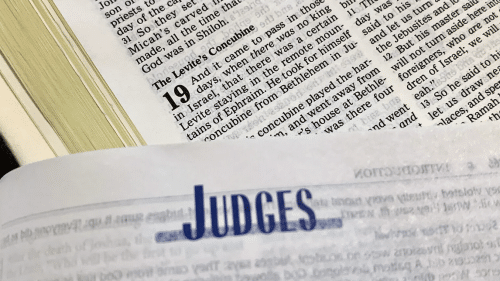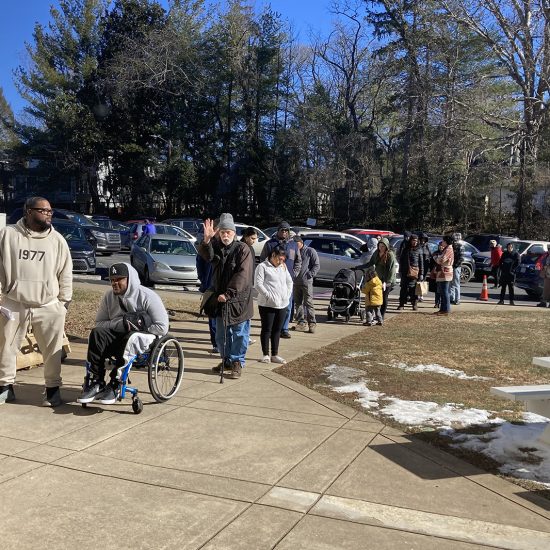
(RNS) — For students hoping to become pastors in the Presbyterian Church (U.S.A.), the exegesis exam is already stressful.
The dayslong exam — which requires students to answer multiple essay questions about a single passage of Scripture, looking at its original context, reviewing commentaries on the passage and then interpreting it for a modern pastoral context — is one of the last things standing between them and ordination.
But the most recent exam was made even more difficult when the committee developing the test chose one of Scripture’s “texts of terror” — the story of a woman who was raped and abused and later dismembered, found in the Book of Judges.
That passage is one of the most difficult to read, not to mention interpret, in the Bible—and spending days immersed in it could retraumatize those who have experienced sexual abuse, said the Rev. Elana Keppel Levy, co-pastor of Trinity Presbyterian Church near Tulsa, Oklahoma.
Forcing students to do so in order to be ordained was “tantamount to hazing,” according to an online petition she created objecting to the passage’s use.
Keppel Levy is one of a number of pastors and educators who have criticized the mainline denomination’s choice to base its recent winter exegesis exam on the biblical story known as “The Levite’s Concubine.”
“There was this intense pain and shock and feeling of betrayal and also that we can’t even do anything about it — like we who are already ordained can’t do anything to protect these people who are being assailed with this,” said the pastor, who is herself a survivor of sexual assault and has a Master of Social Work degree with a special focus on those traumatized by sexual assault.

The Levite’s Concubine passage in the Book of Judges. RNS photo by Kit Doyle
More than half of women and nearly 1 in 3 men have experienced sexual violence involving physical contact, according to the federal Centers for Disease Control and Prevention.
The online petition that Keppel Levy launched Thursday (Feb. 2) has gotten more than 1,100 signatures in less than a week.
“While it is a vital skill for pastors to be able to interpret, teach, and preach from scripture, stories that feature extreme violence and sexual violence cause harm for both test takers and readers,” the petition reads.
The winter exegesis exam was administered from Jan. 28 to Feb. 2. The exam, which was provided to Religion News Service by the PCUSA, asks students to imagine the following scenario: “In your role as the Associate Pastor for Christian Formation, you are leading a Bible study for your congregation’s UKirk college-age ministry exploring unsettling passages in the scriptures. The final story you will be studying is ‘the Levite’s Concubine’ (Judges 19:1-30).”
Students then must write several essays based on the passage, including up to 1,200 words presenting their interpretation of the story and another 600 words outlining a 75-minute Bible study about it they would lead with the imagined college ministry.
Those questions and the resources used afterward to evaluate the exams are developed over a three-year process by the denomination’s Presbyteries’ Cooperative Committee on Examinations for Candidates.
Keppel Levy said that when she took the exegesis exam years ago, it centered on a passage from the Book of Genesis sometimes known as “The Binding of Isaac,” in which God asks the biblical patriarch Abraham to kill his son Isaac as a sacrifice.
It’s the second hardest passage in Scripture, she said.
“The Levite’s Concubine” is the first, she said.
The Rev. Traci Smith, who has been ordained for 15 years, said the exam passage was one that even experienced clergy rarely preach on. In a post on her website, she said she has never preached on the passage and likely never will.
“The reason is simple: the study or proclamation of a passage like this requires pastoral sensitivity and care,” she wrote. “It requires such sensitivity and care, in fact, that I’m not confident I have the proper training.”
Smith, author of the popular “Faithful Families” series of books, went public with her criticism after receiving what she believed was a “laughably dismissive” response from representatives of the denomination to her concerns about the passage chosen this winter.
She said it was not only insensitive to ask students to study and write about the passage without notice or a chance to opt out, but also irresponsible.
“It’s lacking in the kind of basic pastoral care and sensitivity I expect of absolutely every pastor going into ministry,” she wrote.
And it doesn’t help the denomination as it aims to increase its diversity, said the Rev. Brooke Scott, pastor of Church on Main, a worshipping community in Delaware connected with the PCUSA.
“Choosing this text is going to continue making that gap wider in terms of race because this is especially violent to women of color,” said Scott, who is Black.
Women of color are disproportionately impacted by sexual violence, she pointed out.
The way the passage seems to blame the woman who was raped — some translations say she had left her home “in an act of unfaithfulness” or “played the whore” — calls to mind stereotypes of Black women as “overly sexual,” she said.
The way she is unnamed resonates with the epidemic of Missing and Murdered Indigenous Women and Girls whose disappearances rarely receive the same attention as white women’s.
“I think the text needs to be read as an indictment on where our society still has to go, and this doesn’t seem like the format that really allows for that kind of dialogue,” Scott said.
Concerns about the test reverberated beyond Presbyterian circles.
The Rev. Wil Gafney, an Episcopal priest and professor of Hebrew Bible at Brite Divinity School, shared in a Facebook post on Friday how she teaches “The Levite’s Concubine.” She gives students advance notice and offers them the chance to opt out of that class session.
It’s not the kind of passage a student should be asked to interpret under pressure to determine whether they should be ordained, according to Gafney.
“The text is not suitable for that,” she wrote.
The Presbyteries’ Cooperative Committee on Examinations for Candidates directed RNS to statements it had shared with Smith and Presbyterian News Service.
“The PCC takes the raising of such sensitive matters very seriously while also recognizing that not everyone will agree as to when or even if including them within the context of the standard ordination exams is appropriate,” read a statement signed by the Rev. Robert Lowry, who chairs the committee, and the Rev. Beth Garrod-Logsdon, who chairs its Bible Task Group.
The Presbyteries’ Cooperative Committee on Examinations for Candidates chose the passage because “the collective wisdom was that this issue was of sufficient importance to use a question like this on the ordination exam,” Lowry told Presbyterian News Service.
“A reality in the church today is pastors have to be equipped to engage with the parish they serve on issues that might not have been talked about 20 or 25 years ago, including sexual violence and violence in general. Scripture provides a rich narrative that touches on the fullness of the human experience,” he added.
The committee said it could not offer advance notice of the content of the exam because of security issues. And it could not offer an alternative exam after concerns were raised because testing already was underway, as was training for those reading the completed exams this week.
It will, however, allow any candidates who could not complete the winter exegesis exam because of the passage that was chosen to enroll in the spring exam without registration fees.
“To people who have been traumatized, as a brother in Christ, my heart breaks for anyone hurt by an action of the church. We have a responsibility to own that as a church, and we regret that anybody was wounded by being part of the ordination process,” Lowry said.






